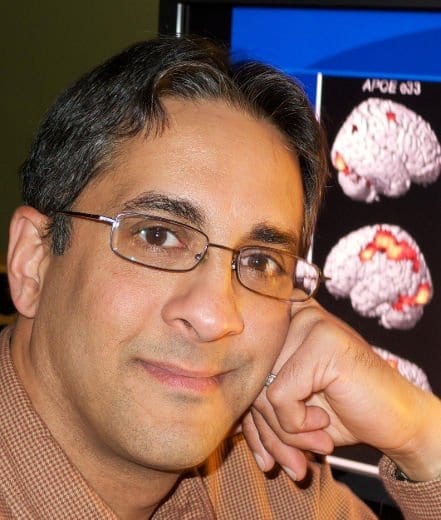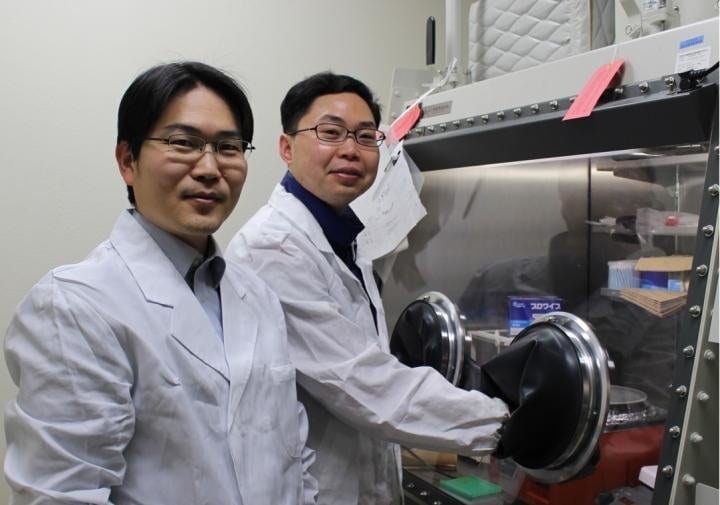
London scientists have made a breakthrough fighting the scourge of multiple sclerosis, fine-tuning MRIs to detect the disease before it ravages its victims.
“This could be a real game-changer,” said Dr. Bruce Bebo, who this year will decide how to invest $50 million in research raised by the National MS Society in the United States.
Bebo marvelled Thursday from afar at the work of a London research team headed by Dr. Ravi Menon that’s aimed at what has been an elusive target — finding and treating MS before it causes physical and cognitive impairment.
The challenge is especially pressing in Canada, where MS rates are the highest in the world — nine times higher than the world average.
Neurologists have long used MRIs to diagnose MS by showing damage to the protective sheath that insulates the body’s central nervous system.
Now, London researchers have fine-tuned a high-powered MRI to actually measure the amount of damage to that protective sheath —called myelin — as well as the deposits of iron typically found with the disease.
The team from Western University perfected the scans first on rats in a study published this month in the journal Proceedings of the National Academy of Sciences.
“It’s a huge step (forward),” Menon told The Free Press.
They then tested it on people, and though that study won’t be published until January, preliminary data showed that damage might be pinpointed
long before patients are traditionally diagnosed, potentially before they had suffered any ill effects.
“It’s really the holy grail, being able to track myelin,” Bebo said.
Though it’s not practical or affordable to screen everyone for MS using an MRI, research is underway to identify those most at risk from the disease. Some day, that work might lead to simpler tests such as a blood test to find those more at-risk who could then be scanned before the onset of symptoms, Bebo said.
In the meantime, more precise MRIs may help people already being treated for the disease with conventional drugs that suppress their immune system — it’s the immune system that attacks the myelin.
That treatment is by trial and error: If patients continue to deteriorate, doctors switch medications. Menon’s MRIs might help doctors switch away from failing medications before the damage occurs, Bebo said.
New research is aimed at reversing the damage to myelin, a task that may deliver even greater benefit if MS is discovered early, he said.
The Latest on: Multiple sclerosis
[google_news title=”” keyword=”Multiple sclerosis” num_posts=”10″ blurb_length=”0″ show_thumb=”left”]
via Google News
The Latest on: Multiple sclerosis
- Dropping the mask of living with multiple sclerosis (Viewpoint)on May 2, 2024 at 5:06 am
Boston area writer Meredith O’Brien is the author of four books including her memoir, Uncomfortably Numb, about the life-altering impact of an MS diagnosis. She is a trustee with the Greater New ...
- 'Autoantibody Signature' Flags MS Years Before Symptom Onseton May 1, 2024 at 6:09 am
A unique autoantibody signature of multiple sclerosis may predict the disease years before individuals become symptomatic.
- Finley siblings share their fight against Multiple Sclerosis, encourages people to get checkedon April 30, 2024 at 7:33 am
According to the National Multiple Sclerosis Society, almost one million Americans live with Multiple Sclerosis (MS), an auto-immune condition that affects the central nervous system. According to ...
- ‘Liquid gold’ could bring new hope to multiple sclerosis patients, study suggests: ‘Profound benefit’on April 30, 2024 at 2:30 am
An experimental medication called CNM-Au8 — a drinkable liquid with gold nanocrystals — has shown promising results in clinical trials for improving MS symptoms. Doctors and researchers weighed in.
- Multiple sclerosis discovery could be a breakthroughon April 29, 2024 at 5:00 pm
We’ve made significant progress in developing better treatments for multiple sclerosis over the past two decades. Yet the medical community still struggles to diagnose the neurological condition, let ...
- Lisa Jarvis: This multiple sclerosis discovery could be a breakthroughon April 29, 2024 at 10:43 am
We’ve made significant progress in developing better treatments for multiple sclerosis over the last two decades. Yet the medical community still struggles to diagnose the neurological condition, let ...
- Multiple Sclerosis Research Newson April 25, 2024 at 5:00 pm
Jan. 9, 2024 — A combination of only 11 proteins can predict long-term disability outcomes in multiple sclerosis (MS) for different individuals. The identified proteins could be used to tailor ...
- Tiziana Life Sciences Announces Additional Clinical Improvements Among Multiple Sclerosis Patients in its Expanded Access Programon April 22, 2024 at 4:12 am
All Patients Have Either Stabilized or Improved on Nasal Foralumab Treatment and No Patients Declined in Key Clinical Measures NEW YORK, April 22, 2024 (GLOBE NEWSWIRE) -- Tiziana Life Sciences, Ltd.
- This Multiple Sclerosis Discovery Could Be a Breakthroughon April 20, 2024 at 5:00 am
A new blood test reveals signs of the disease years before symptoms occur. It could change how MS is diagnosed, treated and studied.
- Blood test may identify who is at risk for developing multiple sclerosison April 19, 2024 at 7:49 am
An early marker of multiple sclerosis could help doctors figure out who will eventually fall prey to the degenerative nerve disease, a new study says.
via Bing News










